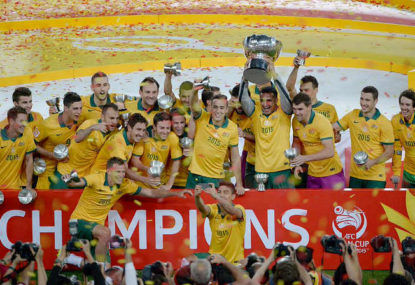Football is changing, slowly but steadily, and the triumph of Australia in the latest edition of the Asian Cup is a clear sign.
Many national teams, long ago considered minor teams, have begun to obtain interesting results. Let’s review the last World Cup to better understand this new phenomenon.
In Brazil we witnessed several surprises, the main one being the great role played by the national team of Costa Rica. The ‘Tico’ team had the misfortune to fall into the so-called Group of Death, where three world championship teams – England, Italy and Uruguay – were expected to fight for top spot.
But football always insists on breaking schemes. With wins against Italy and Uruguay and a draw against England, Costa Rica was transformed into the Cinderella of a tournament where, historically, Caribbean teams were mere extras. But the ‘Tico Miracle’ did not stop and continued its course to the rhythm of Salsa. In the knockouts Costa Rica had to overcome a tough hurdle against Greece, which could only decided on penalties. In the quarter-finals awaited the ever dreaded Netherlands.
Sports commentators were conclusive: the Costa Ricans would not be competition for the Europeans. While the Ticos had already stopped three world champions teams, they now faced the second best team in the world at that moment, which had in Arjen Robben, a football leader of a calibre not seen since the best days of Johan Cruyff.
In addition, Holland came deploying a top-flight football team, which had recorded a resounding victory against Spain, by 5-1. Despite the odds, Costa Rica represented a difficult opponent for players led by Louis van Gaal, who had to wait until the penalty shootout to breathe easy.
But not only the Costa Rican team left a good impression on Brazilian soil. The United States, under the guidance of Jurgen Klinsmann, confirmed that football is no longer the sport of the future in the land of Uncle Sam, but enjoying a very interesting present. While it could not match the historical eighth position of the 2002 World Cup, the US team performed a good tournament, being second to Germany in Group G and beating out Cristiano Ronaldo’s Portugal.
In the knockouts United States was defeated by Belgium, a team that at the start of the tournament was identified by experts as one of the possible protagonists of the championship.
Another who gave the cup a shock was the Algerian national team. The Africans arrived for the first time in its history to the knockout stages but Germany got in its way. The Algerians were a tough nut to crack for the future champion, who needed overtime to break the resistance of goalkeeper Rais M’Bolhi.
In this case, unlike the two mentioned above, we would not be lying if we said that luck played a major factor. The Algerian players played well above what was expected, leaving behind Russia (which is far from being the power it was during the days of the Soviet Union) and South Korea, which did not fulfil expectations at all.
The fact that some national teams have improved their performance over time implies that others have gradually lost the hierarchy they previously enjoyed. The clearest example is Italy. After being enshrined in the 2006 World Cup, the ‘Azzurri’ had in two stumbles of gigantic proportions in 2010 and 2014. In 2006 it was not even able to beat New Zealand.
The All Whites finished above them in Group F, in what was their second participation in the finals of the World Cup. The causes of this has something to do with a lack of generational renewal. Andrea Pirlo, at 35 years old, is still one of the best players in a league where foreigners (South Americans and Africans in their majority) are those providing the leap in quality.
Take for example Inter Milan, one of the biggest teams in Serie A. Strangely, the Nerazzurri exerts a reverse discrimination: in the main team there are only four players of Italian nationality. The rest of the squad is formed with players from Argentina, Serbia, Croatia, Chile, Colombia, Brazil, Japan, Slovenia, Germany and Switzerland.
Inter is not an exception to the rule. All teams in the Italian first division, to a greater or lesser extent, have a substantial amount of foreign players, even in their youth divisions. It’s impossible not to relate this with the slack performance of the Italian national team in recent years.
Italian players have lost ground to their foreign counterparts. It is not surprising that in the last World Cup the Argentine-Italian Gabriel Paletta was selected. The fact that a national team that has given so many great football defenders, like Paulo Maldini, Alessandro Nesta and Marco Materazzi, has to resort to a South American player, is alarming.
Another great that this in bad shape is Brazil. Leaving aside the catastrophic defeat suffered against Germany on July 8 in Belo Horizonte, Brazilians have lost their privileged position. While still great players like Neymar continue to emerge, the young Barcelona striker is commanding a national team that has lost its lustre. There is no longer a Kaka, Rivaldo or Ronaldinho that can support the fearsome striker Hulk. Since 2002 the Selecao has not won a world title.
We are living in a new era where teams previously considered minor, are slowly claiming a privileged place in the elite football. With the victory in the Asian Cup, Australia joins them, waiting to take everyone by surprise.





























































































